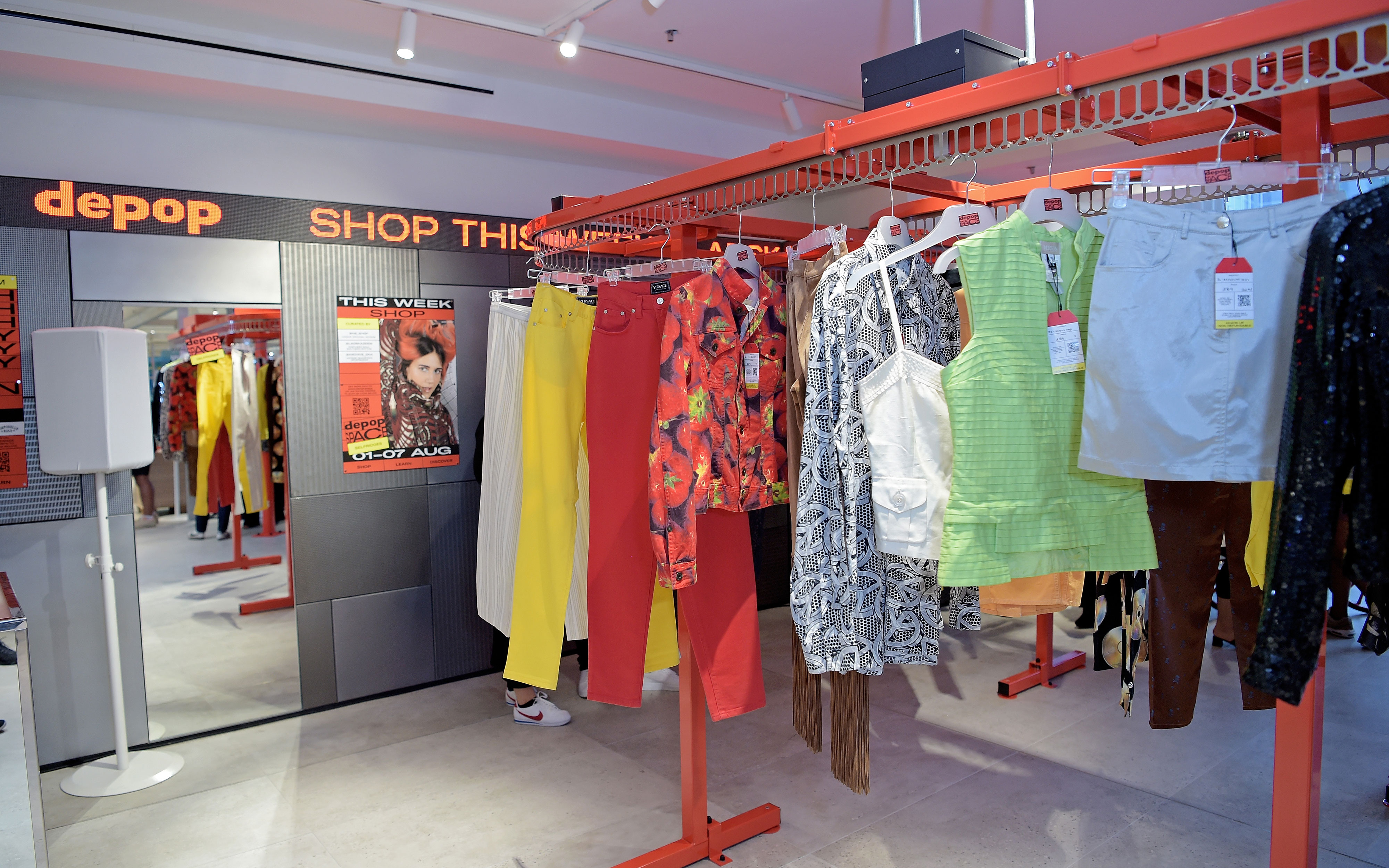The clothing resale app Depop has seen a surge in popularity thanks to Gen Z consumers turning to ethical, online shopping options.
Depop, Gen Z’s favourite clothing resale app, is being acquired by e-commerce site Etsy for $1.6 billion USD. The purchase, which was announced on June 2, is indicative of just how much the secondhand fashion industry has boomed in recent years. Here’s what to know about the purchase and what it means for the fashion resale industry.
What is Depop?
Depop is a U.K.-based clothing resale app that allows users to buy and sell pre-loved clothing through its online marketplace. Founded in 2011, the e-commerce site has become a hotspot for mostly Gen Z consumers who want to find special pieces without breaking the bank. Depop — which has about 30 million registered users — allows shoppers to experiment with their personal style while access secondhand designer clothes at often discounted prices. It is a popular alternative to fast-fashion and luxury fashion, and has experienced a surge in usage over the past year, no doubt impacted by COVID-19 and the collective shift to online shopping.
What does this purchase mean for Etsy and Depop going forward?
As e-commerce continues to be favoured during the ongoing pandemic, the companies working together will merge their growth strategies and distinct expertise, said Etsy CEO Josh Silverman in a statement shared by CNBC. Etsy’s users are generally older than Depop’s, so this acquisition will introduce them to a new, younger audience, and grow their presence in the resale market. As a more established marketplace, Etsy’s ownership of Depop means wider expansion and more profit for the U.K.-based brand. With Etsy’s resources as a larger company, Depop’s popularity and usage is likely to keep growing.
Why has secondhand shopping grown into such a huge industry?
During the pandemic, online shopping increased in popularity largely because of necessity as in-store shopping was either limited or halted altogether. Within this e-commerce surge has been a rise in online secondhand shopping. As a younger generation with keen environmental awareness, Gen Z consumers are more likely to turn to resale clothing sites for products that are both cheaper and greener. This rise in secondhand shopping has been happening in tandem with an increase in fast fashion, with many clothing brands overproducing clothing and contributing to landfill pollution more than ever before. Clothing resale sites like Depop offer wide-ranging price points for a variety of brands, and the ethical, arts-loving culture embedded in the brand’s messaging keeps young shoppers coming back.
@anastowellNew pieces up on my Depop at anastowell🧚🏼♀️ Link in bio to shop! #depoppartner #depop♬ originalljud – absolutesnacc
Depop shopping has also become a lifestyle. Similar to Instagram’s interface, Depop sellers can gain followers based on the pictures they post of the clothes and accessories they’re selling. Some sellers who have grown their followings have even been able to build careers as legit influencers from their success on the app, and Depop hauls on TikTok garner millions of views. In a world of fast fashion, sites like this encourage users to develop their own individual styles through more intentional clothing choices. With the help of the Gen Z consumer, it seems Depop has turned their once small, resale clothing site into a billion-dollar business.
